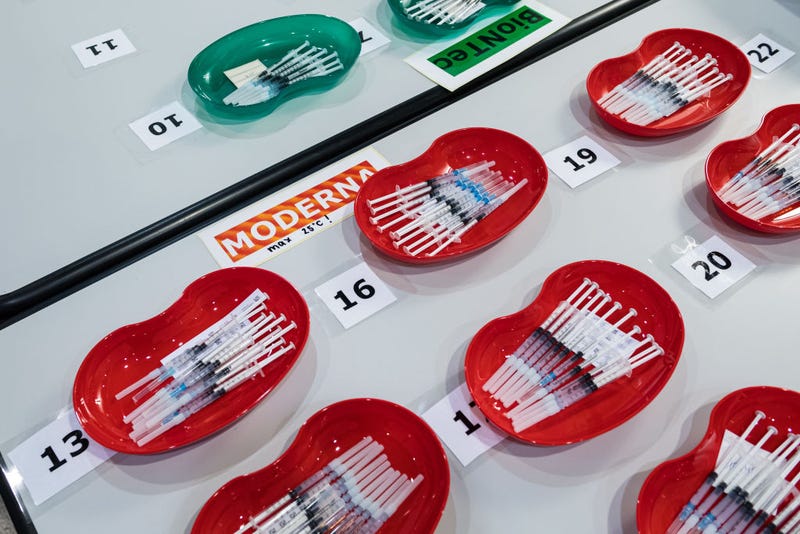
The chief scientist behind Pfizer’s COVID-19 vaccine said he believes their vaccination sufficiently protects people from the disease even though its dosing is significantly lower than the Moderna vaccine.

Philip Dormitzer, the top scientist at Pfizer, told the Financial Times the company “used the minimum dose level” to prompt the body’s immune system to respond, noting their concerns that a higher dose would increase the risk factor for side effects.
The Centers for Disease Control and Prevention warns both mRNA vaccines have similar side effects, including local arm pain or soreness, fatigue, aches, and a fever. There are also some cases of inflammation around the heart muscle, called myocarditis, seen most often in younger men.
The Pfizer-BioNTech vaccine contains about 30 micrograms of mRNA, while the Moderna vaccine has 100 micrograms. Researchers have hypothesized the difference in dosing could be why Pfizer’s shot resulted in fewer antibodies in people than Moderna’s.
An August study of healthcare employees in Belgium concluded that the Moderna vaccine produced twice as many antibodies as the Pfizer-BioNTech shot when comparing people around two months after vaccination.
A September study from the University of Virginia found no variation in antibody response except in people older than 50.
Researchers from both studies point to the difference in dose as a likely contributor to any discrepancies.



